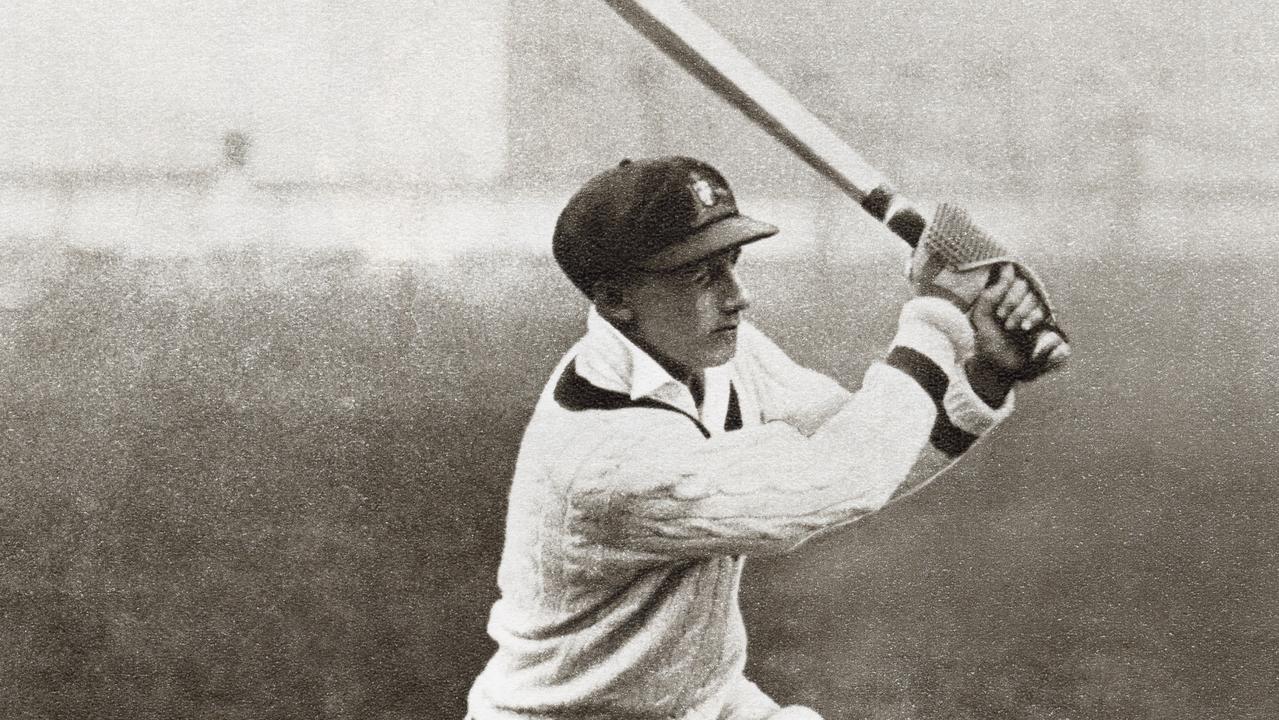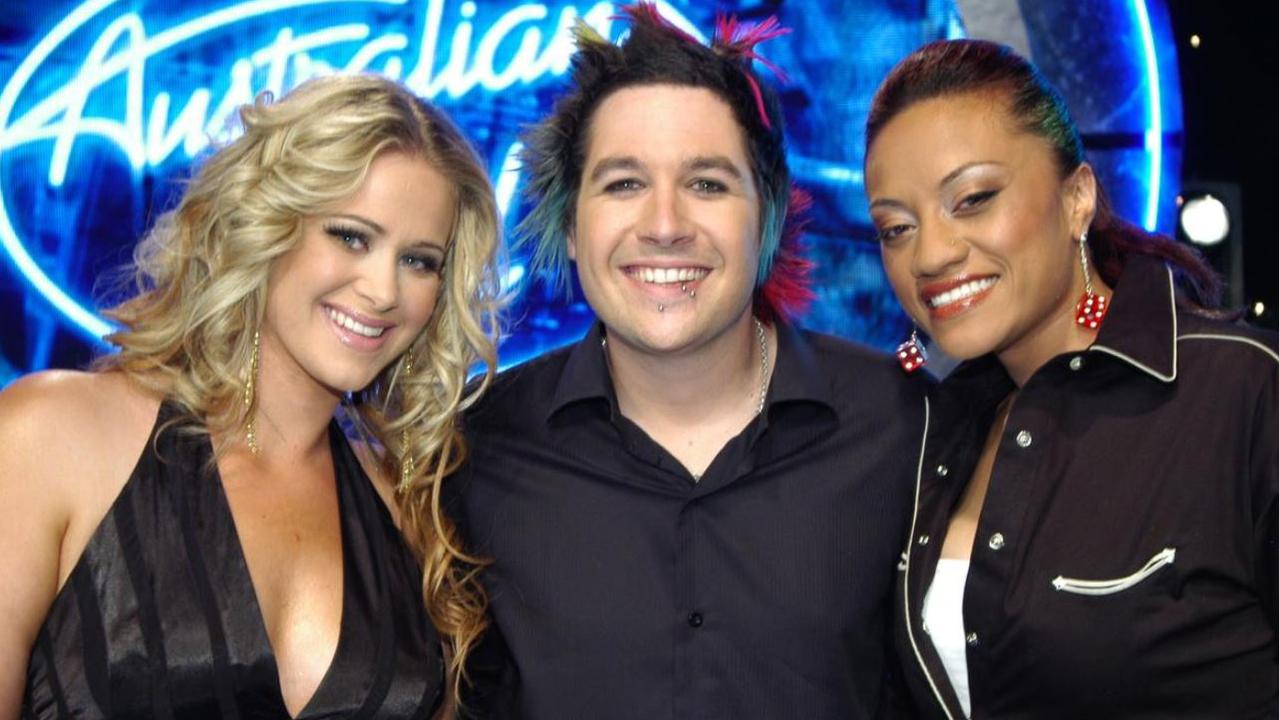SA Weekend: Meet the ex-Port Lincoln fisherman running a global transport empire from Adelaide
With buses in London and Singapore and ferries across Australia it’s one of the world’s biggest tourism and transport empires. Meet the ex-Port Lincoln fisherman helming the company from Adelaide.
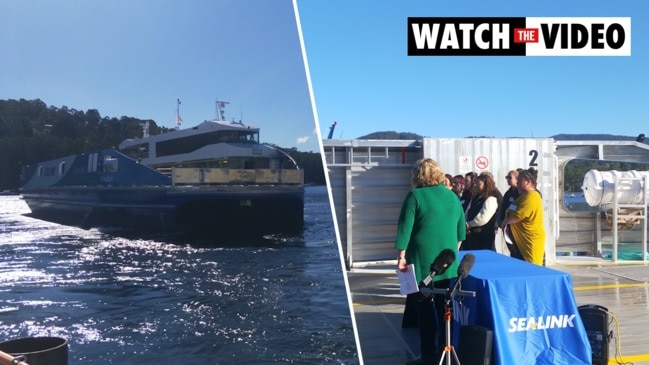
SA Weekend
Don't miss out on the headlines from SA Weekend. Followed categories will be added to My News.
It is the Adelaide-based $2bn global transport and tourism giant you may have never heard of, run by half of an Adelaide power couple sailing a little under the radar.
Kelsian is run by Clint Feuerherdt, a Port Lincoln fisherman turned RAAF fighter jet technician turned merchant banker, who is married to Labor Senator Marielle Smith.
But to go back a step, to things we are all familiar with, Feuerherdt also runs the Glenelg tram, a lot of Adelaide’s buses and SeaLink.
To South Aussies, SeaLink is simply the ferry to Kangaroo Island.
In Queensland it is the ferry to Magnetic and various other islands.
To West Aussies, SeaLink is the ferry to Rottnest Island. In the NT to the Tiwi Islands, in Tassie to Bruny Island. And in its new incarnation it also runs buses and trams, in London and Singapore and in major cities across Australia.
So what started as a single ferry to KI in 1989 has grown to become the nation’s largest land and marine transport and tourism provider. In the 2021 financial year, the group moved more than 207 million customers, had more than 9000 employees and operated 4000 buses, 120 ferries and 24 light rail vehicles across Australia, in London and Singapore.
So, yes, it is a bit more than a ferry service.
But it’s still firmly headquartered in Adelaide, in Flinders St. And that’s where I dropped in to find out how a Port Lincoln lad who grew up in a Housing Trust home, was a tuna and pilchard fisherman, fixed fighter jets and was a merchant banker, ended up on the buses. And trams and ferries.
And why SeaLink’s parent company is now called Kelsian.
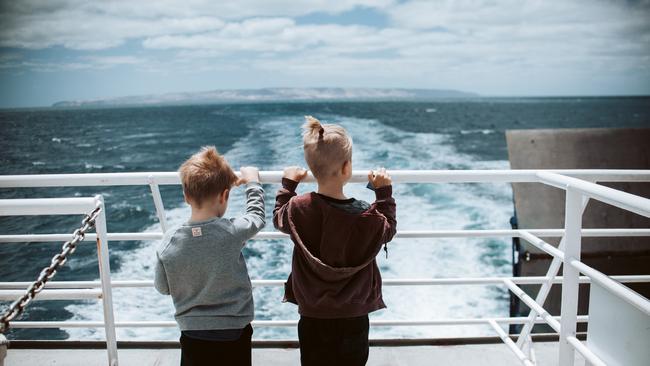
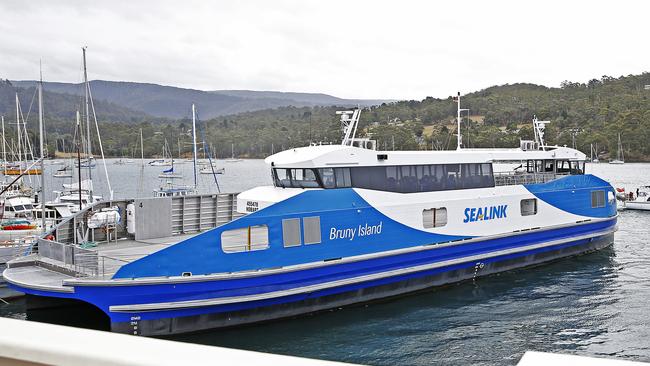
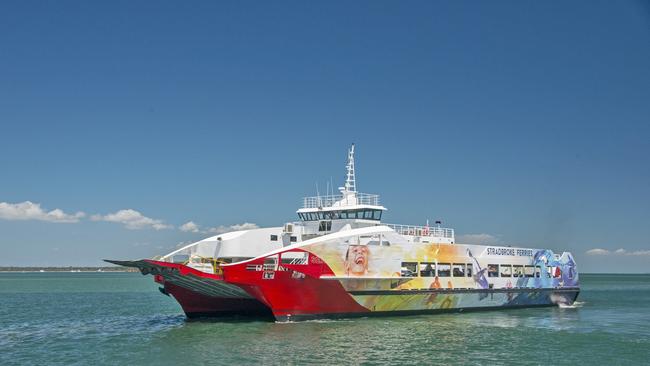
Clint Feuerherdt, 47, has the firm handshake, warm smile and direct eye contact of a personable South Australian as we sit for a chat with no minder nearby to offer helpful prompts.
His circuitous route to run a $2bn transport company is light years from the Sydney silver spoon upbringing one may expect.
The eldest of two children to Garry and Anne, he grew up in a public housing home in Port Lincoln, went to a local primary school and, thanks to his parents scrimping, then went to St Joseph’s School.
It was in some ways a typical Lincoln story. Dad was a hard working tuna fisherman who also drove barges to Thistle Island, Spilsbury Island and various other islands. The young Feuerherdt worked on the barge on holidays.
He also fished, played footy, cricket, surfed, got into the usual mischief, and thought he would end up drifting into a life on the sea, as he had already worked a little on the tuna boats.
The barge his father operated was deployed to work on a Port Stanvac oil pipeline project for Mobil just as the tuna farming industry was really taking off. Having left school, Clint joined Garry on the job.
A condition of the barge work at Port Stanvac was that the younger Feuerherdt join the Maritime Union of Australia (MUA), the irony of which is not lost on him given he is now on the other side of the fence.
“So I became a member of the MUA at age 18, not many people know that,” he says with a chuckle.
Father and son discussed stories flowing from Lincoln about imported Canadian pilchards being used for feed in the tuna pens, and thought, why not fish the local waters which were brimming with the feed fish?
“We had this time at Port Stanvac and thought, ‘Why are they doing this when there is tonnes and tonnes of pilchards in the ocean here, why are we buying them from Canada?’,” he recalls.
“Dad ended up getting an experimental fishing licence from the CSIRO to catch pilchards to supply to the tuna farms. He and I pooled our money from that Port Stanvac job and bought a boat and a net; we were the first pilchard fishermen in SA under licence.
“The CSIRO deemed it a viable fishery and it is now the largest fishery in the southern hemisphere by volume; many thousands of tonnes of pilchards are caught and it is all going locally to the tuna farms.”
Fishing seemed the natural career path. Most of his mates were going to work on boats, on farms and a few became teachers but “I didn’t know any people from my school going off to uni”.
His mother Anne had other ideas.
“My mother was pretty determined that I was not going to be a fisherman. She spent a lot of time raising us kids while dad would be away for weeks on end tuna fishing so she was pretty adamant that I was not going to be a fisherman,” he says.
“I got into engineering out of school but deferred and deferred, I didn’t really want to go to uni, I wanted to travel but I didn’t have any money.”
While his father continued to grow the pilchard fishing business – he eventually sold it to Tony Santic of tuna and Makybe Diva fame – Feuerherdt joined the Royal Australian Air Force.
He ended up at RAAF Base Amberley in Queensland where he worked on F-111s as a technician.
A keen scuba diver and certified divemaster, he became president of the base’s scuba diving club which included taking people away for team building exercises.
“Being a knockabout kid from Lincoln growing up in a blue collar environment you don’t often consider yourself to have much of an ability outside of your practical hands skills,” he says.
“It was only after I got to the air force and started doing very technical courses on strike fighters that I realised I had an ability and an aptitude, when I was sitting alongside other people doing a very complicated course on a terrain-following radar or electronic warfares systems.
“I basically did every course there was in the air force to know that jet back to front.”
That put him into a leadership position, as he quickly became a supervisor and a go-to person for knowledge on the F-111.
However, he still didn’t really know what he wanted to do. The government was paying him money and that was enough to get by week to week.
Engineering seemed an obvious choice for study, but commerce was more interesting. This was not a RAAF study option so he put himself through the commerce degree at the University of Queensland.
He also became interested in investment banking and the relatively easy going life suddenly became more serious.
“When I decided I could be a mergers and acquisitions banker I researched that and realised there are half a dozen jobs a year in this space and thousands of people apply,” he says.
“That’s when you start to focus and say if I want to do this I have to knuckle down.”
Knuckle down he did, graduating with an Honours degree in commerce and the University Medal.
He also married, a union that lasted 15 years, and he remains close to children Lachlan, 15, Gemma, 13 and Tobias 11, although they live on the Sunshine Coast.
With his commerce credentials Corporal Feuerherdt, the fisherman-turned-F-111 fixer, moved into merchant banking.
He believes his resume helped him stand out from the crowd, from the work ethic instilled in Port Lincoln and entrepreneurship of setting up the pilchard fishing business to working on RAAF fighter jets and putting himself though university with a stellar result.
He worked in Sydney at JP Morgan Chase and Investec Bank in the rarefied merchant banking world, in offices somewhat different to the deck of a pilchard fishing boat.
Transit Systems, co-founded by Neil Smith, which runs bus routes including Torrens Transit in Adelaide engaged him for advice during a bid by Macquarie Bank to buy them as the seed asset for a public transport fund.
The bid did not go ahead and, as the Transit board got to know Feuerherdt, they tried to headhunt him to run their own ambitious expansion plans.
He resisted for two years, they persisted, and eventually the time seemed right to jump on the buses.
“I’ve never looked back,” he says.
In 2009, he became chief executive of Transit Systems and with his merchant banker background both he and the board were keen for growth beyond what was an Adelaide and Perth bus operation.
He had eyes on the world, so a structure was established in the Netherlands to tender for business in Europe. This was a steep learning curve that eventually led to London where, in 2013, they secured the Tower Transit public bus service contract.
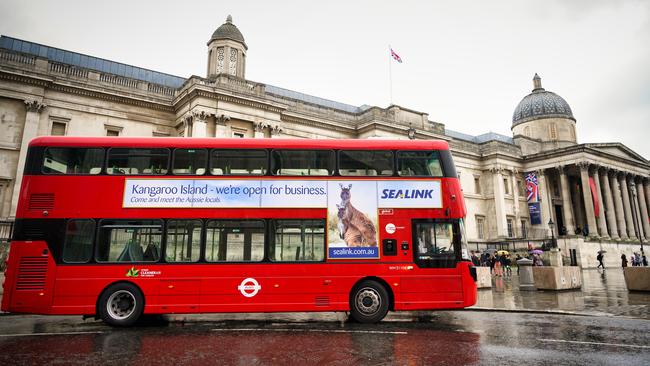

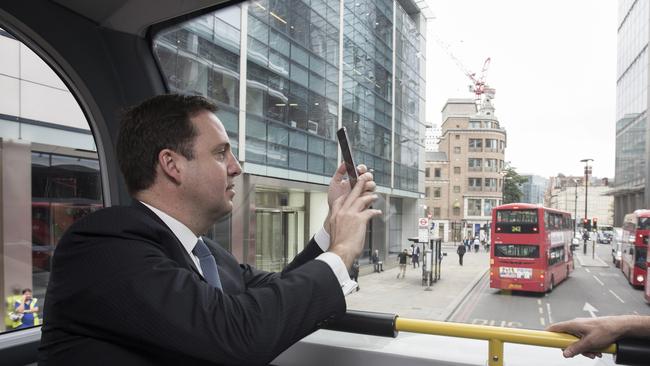
It was a hectic time; the company had bought multiple Queensland ferry services, was expanding into NSW and looking at other domestic opportunities as well as the British deal.
So Feuerherdt was a little less than impressed when, in the middle of the UK negotiations, Transit’s chair Neil Smith pulled him aside and told him his daughter Marielle was studying at the London School of Economics and could he meet her to offer some career counselling?
“I said to Neil, ‘Mate, we are in the middle of making our first big international step, I really don’t have time to go and provide your daughter with career counselling’,” he recalls.
But even deal-makers have to eat so he bit the bullet and decided to meet Marielle for a meal and give her some pointers.
“From that point I was captivated, she was the most amazing person I have ever met,” he says. “And we still got the deal done.”
The London-Adelaide romance was not easy, nor was the international expansion and Feuerherdt recalls a lot of commuting, in some cases using planes like buses, flying in for a day meeting then straight back again.
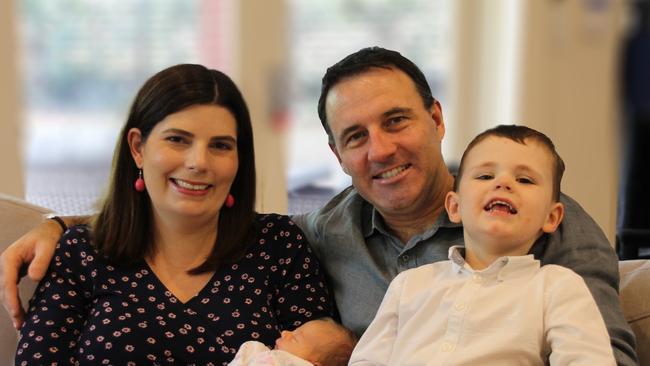
The couple married in 2016 and have children Benjamin, 4, and Zara, 1.
Smith, 35, was elected as a Labor Senator for South Australia in 2019 and says she and her husband are “separate people with separate careers”.
He may have married the boss’s daughter but has well and truly been in charge of Transit’s domestic and international expansion for years, and the wedding followed yet another year of growth.
The complicated London deal gave the company – and Feuerherdt – a skill set and appetite for more international expansion.
In 2015, after more than six years of talks, the company won its first contract in Singapore.
It now runs more than 750 buses there, with a workforce of about 1500, making it almost the equal second-largest public bus operator.
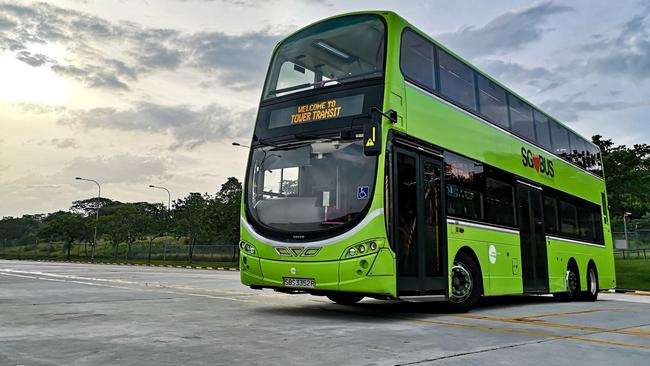
It was also in 2015 that Transit’s ferry division was sold to SeaLink as that company significantly expanded under then-chief executive Jeff Ellison, now chair of Kelsian.
At the time Transit was the nation’s largest privately owned ferry operator, so Feuerherdt is as familiar with marine transport as he is with buses.
Or F-111s.
Or fishing boats.
There was discussion of collaboration between SeaLink and Transit, which eventually petered out. However, in 2019, talks resumed.
Both sides could see a global future for a combined transport and tourism company based in Adelaide.
“The stars aligned in 2019,” Feuerherdt says simply.
In January 2020, SeaLink Travel Group acquired Transit Systems Group for $635m and Clint Feuerherdt became chief executive of SeaLink.
Before the acquisition it had 1655 employees. The combined group now has more than 9500.
The deal was done just as KI was under siege from horrendous bushfires and SeaLink is the big gorilla of the island: its major employer, lifeline to the mainland, sponsor of about 100 community groups, tourism heavyweight and a group that would also play a significant role in the bushfire recovery effort.
Suddenly it had a new boss.
“My first job was to go to KI, it really was a baptism of fire,” Feuerherdt says.
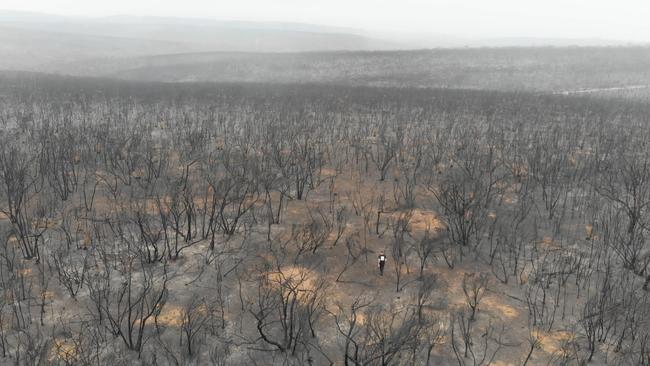
As the fires finally eased, the full force of the Covid-19 pandemic struck.
Lockdowns and travel warnings hit SeaLink’s tourism business, but the new combined business had the insulation of government contracts.
This contract cushion meant the company’s public vehicles operated as essential services whether they were packed in normal times, or were carrying just a few exempt health workers to hospitals during various lockdowns, be it on the streets of London, Singapore, Sydney or Adelaide. That means there’s no commercial upside if they are packed, but no downside if they are near-empty.
The pandemic also showed the resilience of public transport to major investors.
Before Covid, airports had been a stockmarket darling with infrastructure investment money pouring in. Then they were virtually shut and aircraft grounded, while humble public buses kept running.
Despite the pandemic and the challenges of the merger,the group today continues to eye expansion opportunities.
Feuerherdt says the company’s Australian heritage gives it advantages when bidding for work in places like London where most people catch buses or the Tube, unlike Adelaide, where the car is still largely king and the challenges of running an effective system heightened substantially.
“I often say one of the biggest disadvantages in Australia is being Australian, because Australians tend to think world’s best practice has to come from offshore somewhere,” he says.
“So when you are trying to sell your services in Australia I think you are immediately discounted for being Australian – ‘How can you be world’s best practice if you are here on the other side of the world to where it is all happening?’.
“But when you think about the provision of public transport, we’ve got massive urban sprawl, very low levels of population relative to some of the cities we operate in, and we’ve got limited budgets.
“If you can provide a very efficient and effective public transport network under those circumstances, I think you can go to any city in the world and run a very every effective public transport network, because you are doing it in the hardest place already.
“Honestly, anybody can run a bus service in London, you run it down any street and people are going to get on.
“That’s not the case in Adelaide, you have to be really strategic about how you use your assets and that’s what we sell to governments overseas, the ability to drive efficiency and get the biggest bang for the buck for the taxpayer.”
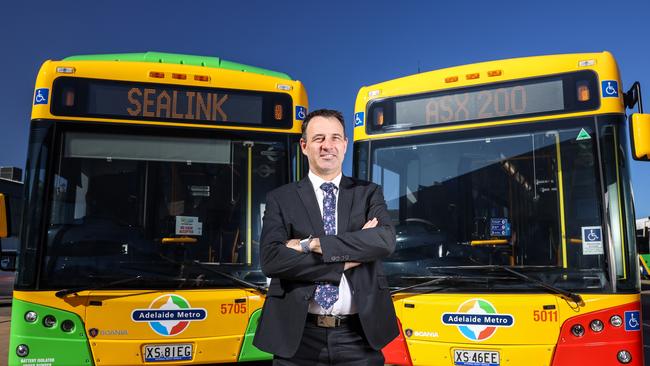
Growth across Australia including Sydney and Melbourne plus overseas expansion now sees the group in the ASX top 200 and in the top 10 listed Adelaide companies.
However, growth also presented a corporate dilemma.
Here, for many people SeaLink, is “the KI ferry”.
Anywhere else, the name probably conjures up a marine operation, not exactly a diversified transport company running 4000 buses and 24 light rail vehicles.
So last October, with shareholder approval, the overall parent company name was changed to Kelsian.
The anagram of SeaLink pays homage to the company’s history, and the famous SeaLink brand firmly stays for local ferry and tourism operations, as do local bus brands in various locations such as London’s Tower Transit and Adelaide’s Torrens Transit.
While at first glance the name Kelsian may seem a bit odd, so were corporate names like Google when they first appeared.
“The name reflects a reorganisation of the business but also respects the history,” he says.
“The parent company needed to a have a name that reflected the underlying diversity of the operation.”
However he wryly admits when he tells people at social functions he works for Kelsian he often gets a blank look.
Then he says “SeaLink” and the blank look turns to a smile and a: “Oh, you work on the KI ferry.”
With its new name, there is no resting on laurels.
Kelsian has acquired Go West in Western Australia as a nice fit to its expansion plans.
As well as tourism services, Go West has contracts with blue chip mining companies to transport FIFO workers from airports to hotels and to worksites such as in the Pilbara and back.
It also has a Los Angeles office. While America may be the land of the automobile, it too offers opportunities for efficient public transport.
The company also is looking at marine opportunities where it has buses.
Locally, the SeaLink branch of Kelsian has just won a new contract to deliver KI ferry services until at least June 2039, with a further two, five-year performance-based extension options.
Under the deal, fares for KI residents will drop as will freight costs, services will increase, wharf and harbour infrastructure will be upgraded and two new catamarans will be built.
Feuerherdt says the company “absolutely” is still in a growth phase, but mainly overseas.
“We have something special to offer public transport networks around the world with what we have built and managed to do in Australia, so most of our significant expansion will be internationally,” he says.
Kelsian is also going green. With various governments worldwide setting targets for zero net emissions, public transport has a big role ahead.
“If we are going to reduce emissions in our cities, at a minimum public transport needs to be zero emissions and to the extent possible we need to draw people out of their cars and onto that zero emission public transport network – not everyone is going to be able to buy an electric car,” he says.
Kelsian will have 57 electric buses operating in its Sydney network by the end of the financial year with plans for many more in the pipeline and also is looking at hydrogen fuel cell options.
Feuerherdt is committed to keeping Kelsian based in Adelaidewhere it can take its world’s best practice in public transport to the world, aided by feedback from SA’s straight-talking commuters.
He is also very happy with SA’s lifestyle which suits his roots, from beach fishing to staying in touch with the workforce.
“Because of my background such as on boats and with the RAAF I feel more at ease sometimes in the workshop of one of our bus depots than in the corporate boardroom,” he quips.
“I can hang out with the guys and understand what is really going on because I grew up working on the tools. It’s a very SA thing as well.
“I’m a bit of a chameleon, living at both ends of the spectrum.”
It’s a long way from a Port Lincoln pilchard fishing boats to the buses of the streets of London.
A long way from a loving Housing Trust home to the boardroom of a $2bn transport and tourism company.
Buses, ferries, light rail – Clint Feuerherdt is comfortable in the driver’s seat at Kelsian, on a world trip collecting new opportunities. ■


